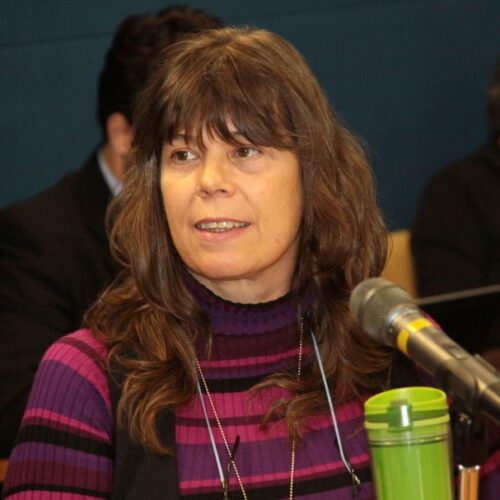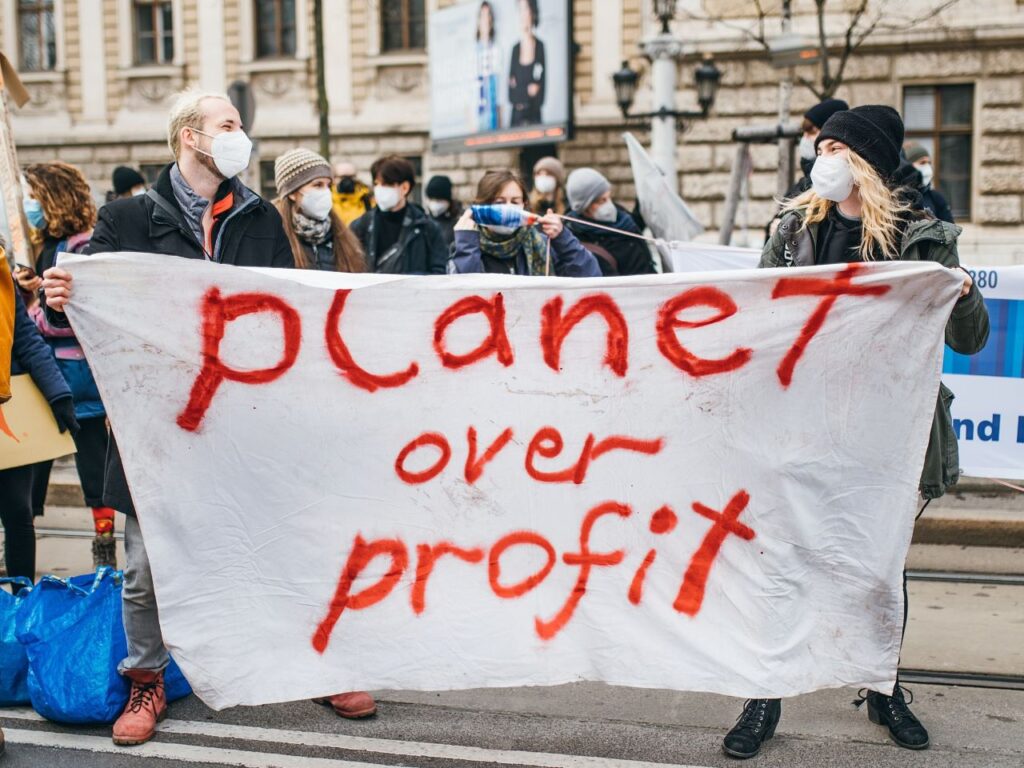“I lost part of my childhood due to ozone depletion:” researcher, activist infuriated by results of COP28
Spending more than 15 minutes outside without sunscreen led to painful consequences. Soon, many people in Urugay developed increasing rates of skin cancer. I remember parents covering babies in special clothing just to go to the beach. Years later, my own mother developed tumors and skin cancer.
- 6 months ago
February 10, 2024

MEXICO CITY, Mexico ꟷ As a child, I spent hours playing along the beautiful shoreline near my home in Uruguay. Running along the coast and playing in the sand felt incredible. No matter what your social class, everyone gathered at the public beaches to socialize and enjoy nature. I loved to feel the waves caressing my feet.
Those days vanished, however, when public announcements warned us not to go to the beach during certain hours of the day. [Uruguay became one of the countries most affected by the Antarctic Ozone Hole.] As a result, I lost part of my childhood due to ozone depletion. Now, through my organization, we deconstruct popular climate technologies that manage symptoms but offer no real solutions. We do this as a form of resistance.
Days of playing at the beach disappeared underneath a hole in the ozone layer
I understand first-hand how environmental degradation impacts people and places. While growing up, I constantly heard about the depletion of the ozone layer and how the hole could harm our skin. Advisories urged us to stay indoors between midday and 5:00 p.m., especially from November through March. My days at the beach dwindled.
Spending more than 15 minutes outside without sunscreen led to painful consequences. Soon, many people in Urugay developed increasing rates of skin cancer. I remember parents covering babies in special clothing just to go to the beach. Years later, my own mother developed tumors and skin cancer.
The images of her suffering and her ultimate death remain etched in my memory. I thought, “She did not cause the problem in the ozone layer, but she suffered from it.” My mother became one of the many individuals disproportionately affected by climate change in my birth country.
When I began working as a journalist, it exposed me to more stories like this; stories of people affected [by climate change]. I became deeply interested, not just in the problem, but the causes. I found it paradoxical that the issues facing vulnerable populations are created by the richest people in the world.
Reading a report from Oxfam, I learned that the richest one percent produced as much carbon pollution in 2019 as five billion people from the poorest two-thirds of humanity. These numbers represent personal tragedy. That pushed me deeper into the work I do now as the Latin America Director of ETC. A small research collective, we focus on social and environmental justice and human rights.
From journalist to researcher, activist takes a stand on climate change technology
At the last COP28 United Nations conference on climate change in the United Arab Emirates in Dubai, I heard grandiose speeches. They aimed to address the climate crisis, yet, by the end of the conference, the opposite seemed to happen. The final document did not force polluting countries to [legally] commit to reducing emissions.
[According to the Smithsonian, “Pressure from the oil and gas industry watered down climate commitments from nations, and those commitments aren’t legally binding.”] Feeling disappointed, my mind wanders to communities like those in Ecuador where oil exploration takes over entire territories. Companies arrive in rural places, installing technologies, but they fail to disclose the real impact on people like indigenous tribes. They destroy village lands, contaminate water, and harass citizens.
When the locals reach a breaking point, like me, they protest to assert their rights. From our homes to international conferences, we raise our voices, but too often, we get drowned out. I’ll never forget in February of 2020, headlines broke on the Mississippi carbon pipeline explosion. As the largest explosion of its kind in history, hundreds of individuals had to be evacuated and admitted to hospitals.
The toxic gas, in concentrated form, could quickly burn anything near it. It possessed the potential to wipe out entire areas of biodiversity in minutes. I began to wonder, “How catastrophic would it be if that explosion occurred in my small community of Uruguay, or other communities experiencing forced development around the world?”
I imagined the implications in places with less regulation, where companies operate with impunity. In these communities, injustice often prevails.
The COP28 summit infuriated activist seeking immediate solutions for vulnerable communities
At ETC, I get to apply my 25 years of research experience to deconstruct and resist the inefficient mechanisms being touted as solutions; mechanisms that fail to benefit the most vulnerable amongst us. As our research turned to climate technologies like geoengineering and carbon capture, we discovered risks, adding a new layer of challenge to already struggling communities.
Formerly called Enhanced Oil Recovery, carbon capture and storage emerges from the oil industry. Suddenly, high emitting companies responsible for climate change could get subsidies to develop a technology that allows for more oil exploration by injecting, capturing, and storing carbon.
The dangers and risks associated with this technology impose problems on developing countries like those in Africa and Latin America in the guise of developmental aid. The COP28 summit infuriated me, calling for accelerated funding to deploy failed or unproven energy sources and high-risk technologies like nuclear energy, hydrogen fuels, and carbon capture and storage.
Despite their potential to increase GHG emissions while adding new risks, COP28 leaders seem to consider them a transition away from oil. The heavy hand of oil, gas, and fossil fuel companies clearly influenced and blocked fair negotiations.

























































































































































































































































































































































